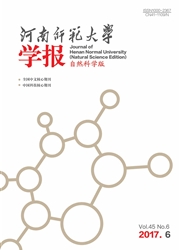

 中文摘要:
中文摘要:
随着国内经济的快速发展,砷污染引发的环境污染问题日益突出.砷可通过食物链最终进入人体,危害人类健康甚至生命安全,因此研究植物响应砷胁迫的分子机制具有现实意义.细胞自噬(autophagy)参与植物响应逆境胁迫,但是尚不清楚其在植物响应砷胁迫过程中的作用.本试验采用不同浓度的As2O"3处理野生型拟南芥和过表达型ATG8f的转基因拟南芥,通过对比分析拟南芥植株根长和叶绿素含量的差异,研究过表达细胞自噬基因对植物耐受砷胁迫影响,结果表明过表达ATG8f基因增加了植物对砷胁迫的敏感性.
 英文摘要:
英文摘要:
With the rapid economic development,the environmental pollutions caused by arsenic deteriorate has become increasingly acute these years in China. Arsenic is hypertonic and poisonous to people while entering human body via food chain. It is helpful to deeply research the mechanisms of plant responding to arsenic stress. Autophagy involves in response to stresses in plant,but little is known for its roles in plants exposed to arsenic. In order to detect the impact of ATG8 f over expression on susceptibility in plant,wildtype Columbia( Col) Arabidopsis and ATG8 f transgenic lines were treated by different concentration of arsenic solution. With the comparison of root length and chlorophyll contents,our results showed that the over expression of ATG8 f in Arabidopsis increases the susceptibility to arsenic stress.
 同期刊论文项目
同期刊论文项目
 同项目期刊论文
同项目期刊论文
 期刊信息
期刊信息
